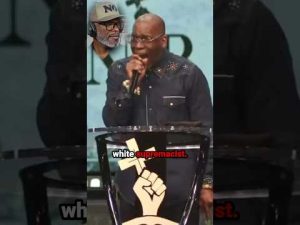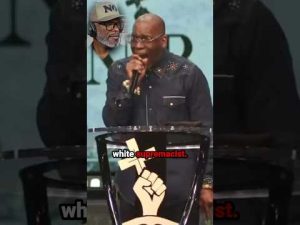In a twist of events that has many scratching their heads, Jimmy Kimmel has seemingly exited the spotlight, leaving behind a world where the lines between comedy, politics, and morality are more blurred than a rainy day in Seattle. On a conservative news channel, the buzz surrounding Kimmel’s departure has been likened to a scene from a drama series rather than an entertainment show. It appears that as Kimmel takes a step back, the stark contrast between right and left ideologies is becoming more pronounced. With Kimmel’s absence, the stage is being set for renewed discussions about values and narratives that resonate with audiences.
The conversation shifts dramatically as Montel Williams, a name that might draw a few nostalgic smiles from those who remember the heyday of daytime talk shows, has made an unexpected reappearance in the media spotlight. He was quoted reflecting on the tragic assassination of Charlie Kirk, attempting to paint a picture of misguided emotion behind the act. His commentary stirs the pot, as he seems to suggest a sense of empathy for the alleged assassin, likening it to a misguided love story reminiscent of classical romances. This interpretation raises eyebrows and brings to light the baffling nature of how incidents of violence are often discussed in the media, especially by those on the left.
With the recent assassination of Charlie Kirk serving as a grim backdrop, the narrative continues to unfold. The idea that such a tragic event could be compared to stories like Romeo and Juliet or Titanic is enough to make anyone do a double take. It’s as if fabricating a romantic subplot around heinous acts is a new trend gaining traction. Those on the right find it outrageous that, in their view, the left seeks to glamorize a violent act instead of addressing the more complicated and disturbing issues surrounding it. This is not merely about a crime; it’s a matter of decency and understanding the real implications of such actions.
As protests erupted outside a New York courthouse following the dropping of charges against Luigi Mangione, another controversial figure, those on the right have noted a troubling pattern. The media frenzy surrounding not just Mangione but also the alleged killer of Kirk reveals a sensationalist approach that they believe romanticizes dangerous individuals. Some have observed that this perception translates into a form of admiration for criminals, where society seems to forget the victims and instead focuses on glorifying those who commit the wrongs. This modern-day fascination with violence as a narrative device boggles the minds of conservative commentators.
The crux of this debate revolves around good versus evil, right versus left. It’s not about taking sides for the sake of division but about understanding the implications of how stories are told and who gets to be the “hero.” In a world where reports indicate that the media sometimes wraps narratives of violence in the guise of emotional storytelling, it becomes crucial to draw the line. At the heart of these discussions is a reminder that what is missed in these “love stories” is the real suffering of those affected by such tragedies. It’s a cautionary tale about the narratives we create and disseminate, reinforcing the continuing divide in understanding and sympathizing with what actually constitutes heroism and villainy. This dialogue matters, as it shapes not only public perception but also the very fabric of societal morality.







